activity
-
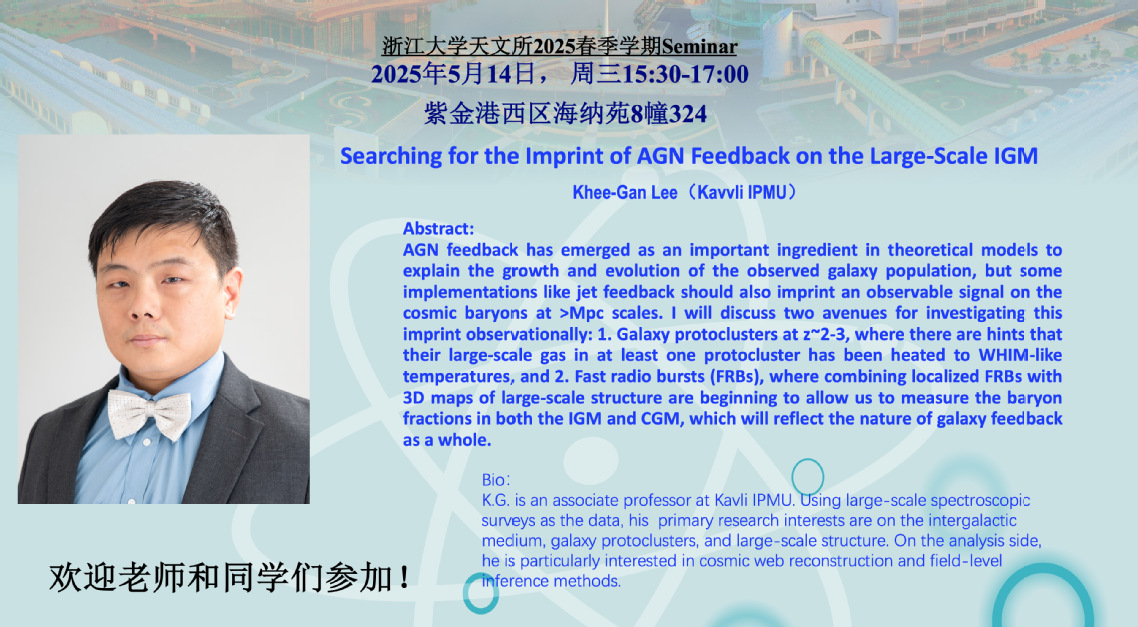 Academic report of the Institute of Astronomy, Zhejiang University
Time:Address:Speaker:More
Academic report of the Institute of Astronomy, Zhejiang University
Time:Address:Speaker:More -
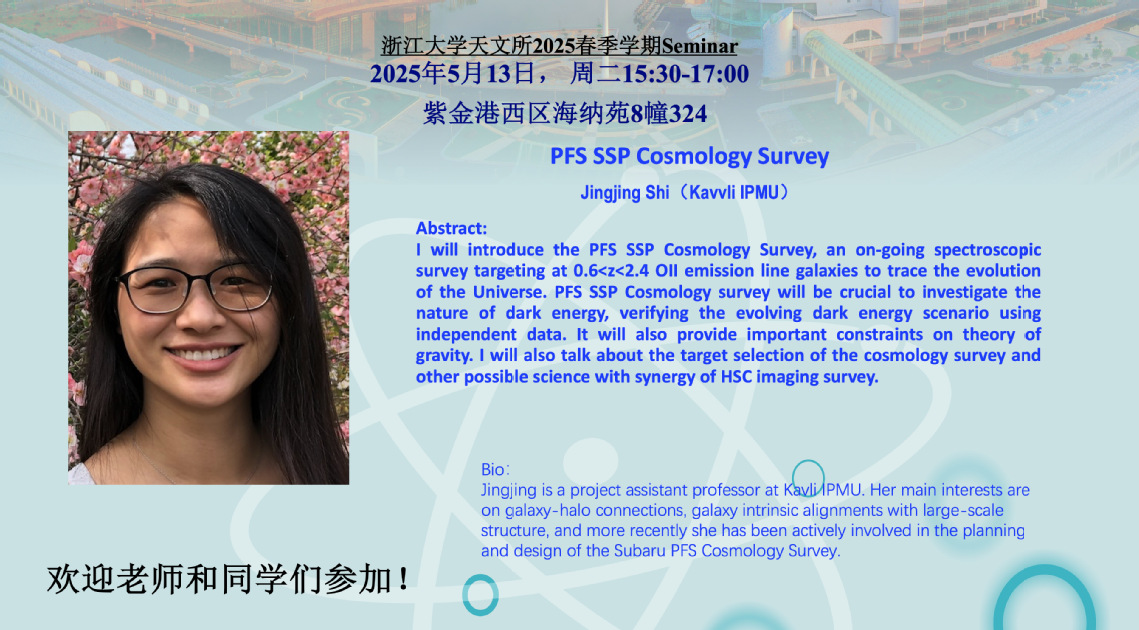 Academic report of the Institute of Astronomy, Zhejiang University
Time:Address:Speaker:More
Academic report of the Institute of Astronomy, Zhejiang University
Time:Address:Speaker:More -
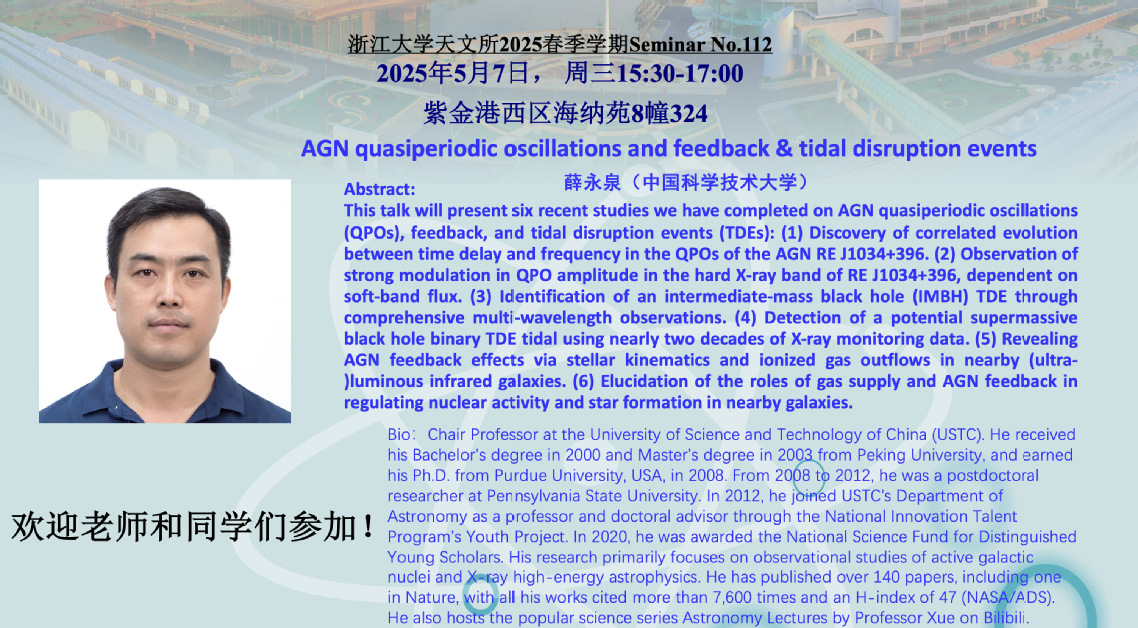 Institute of Astronomy, Zhejiang University Spring Semester 2025 Symposium No.112
Time:Address:Speaker:More
Institute of Astronomy, Zhejiang University Spring Semester 2025 Symposium No.112
Time:Address:Speaker:More -
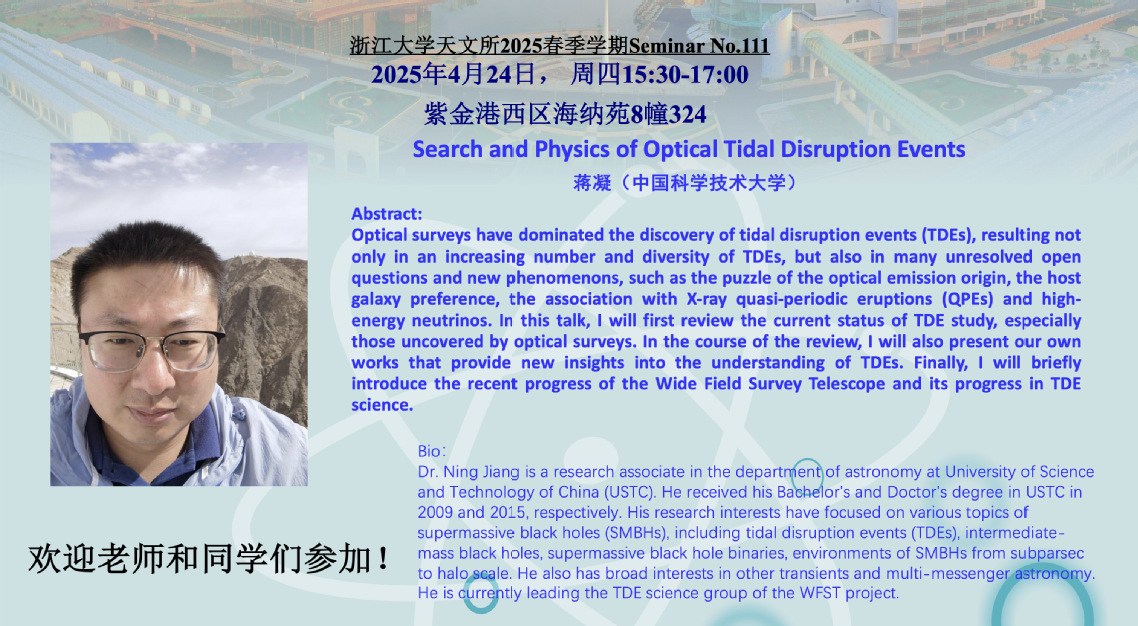 Institute of Astronomy, Zhejiang University Spring Semester 2025 Symposium No.111
Time:Address:Speaker:More
Institute of Astronomy, Zhejiang University Spring Semester 2025 Symposium No.111
Time:Address:Speaker:More -
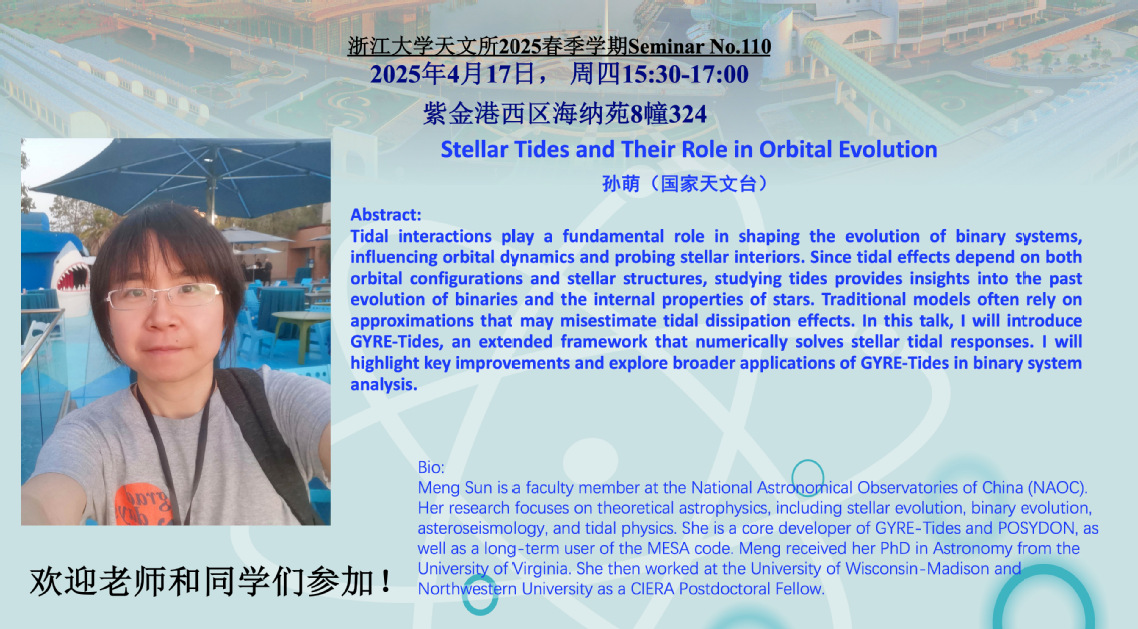 Institute of Astronomy, Zhejiang University Spring Semester 2025 Symposium No.110
Time:Address:Speaker:More
Institute of Astronomy, Zhejiang University Spring Semester 2025 Symposium No.110
Time:Address:Speaker:More -
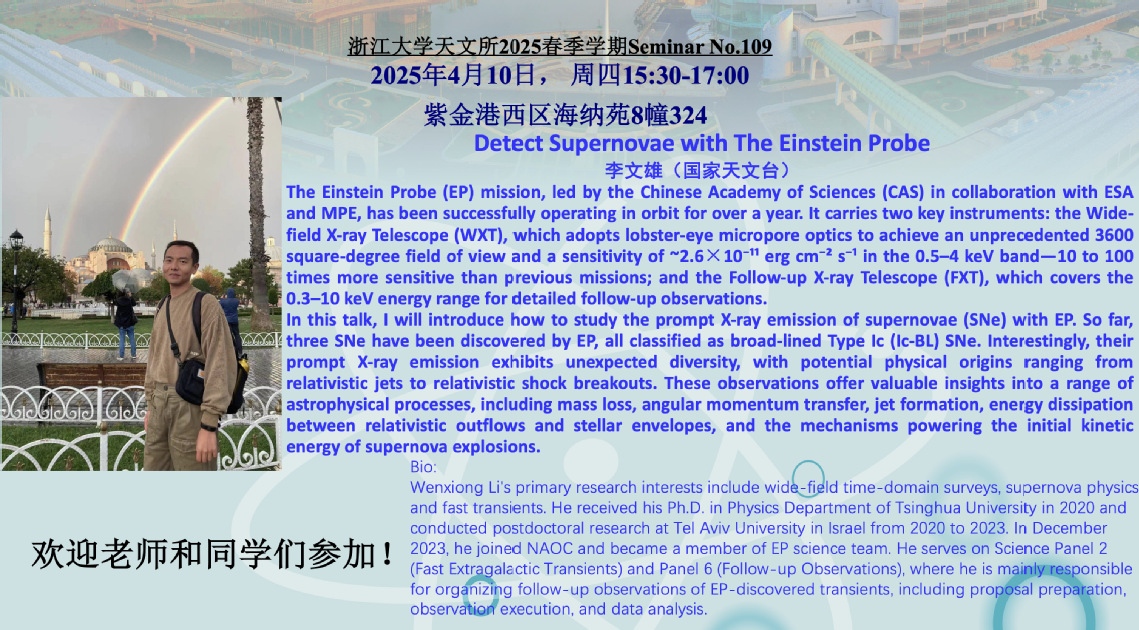 Institute of Astronomy, Zhejiang University Spring Semester 2025 Symposium No.109
Time:Address:Speaker:More
Institute of Astronomy, Zhejiang University Spring Semester 2025 Symposium No.109
Time:Address:Speaker:More -
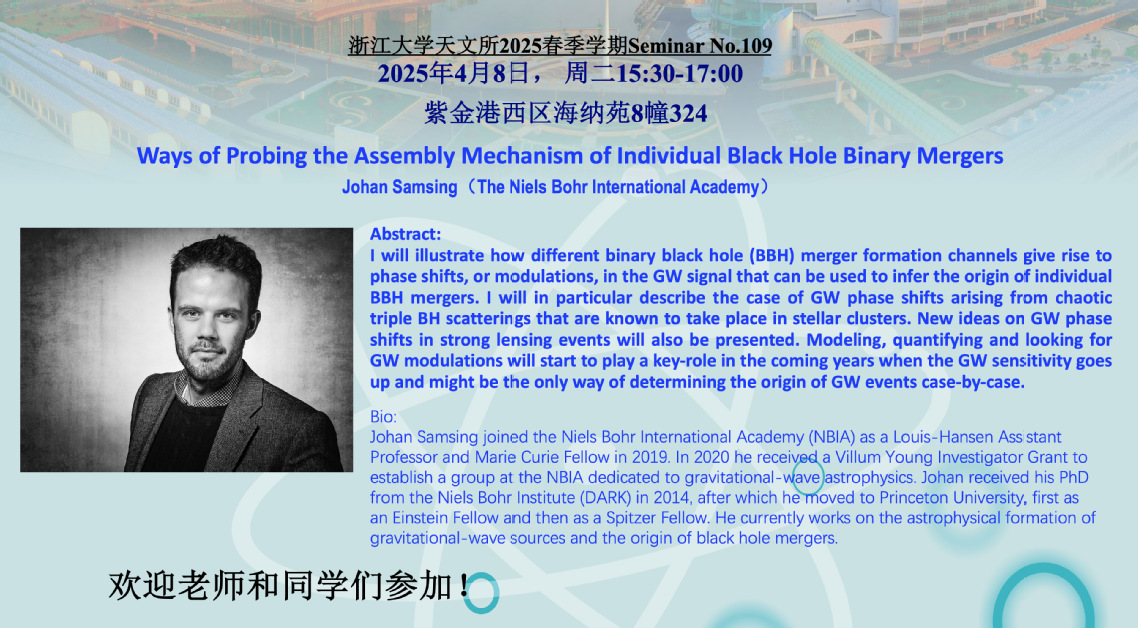 Institute of Astronomy, Zhejiang University Spring Semester 2025 Symposium No.109
Time:Address:Speaker:More
Institute of Astronomy, Zhejiang University Spring Semester 2025 Symposium No.109
Time:Address:Speaker:More -
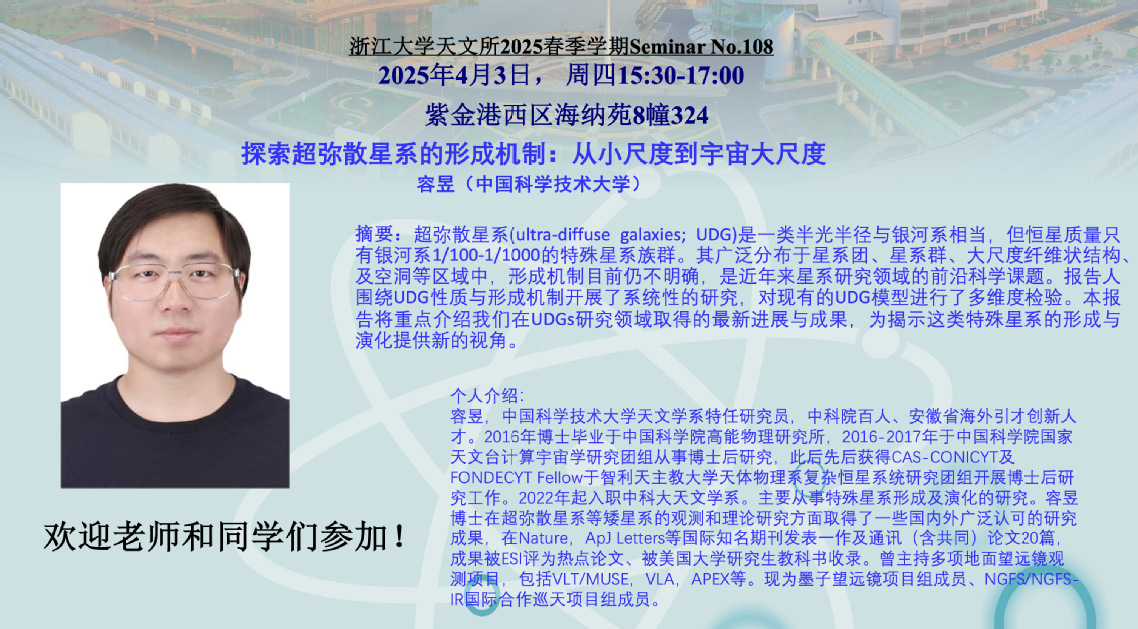 Institute of Astronomy, Zhejiang University Spring Semester 2025 Symposium No.108
Time:Address:Speaker:More
Institute of Astronomy, Zhejiang University Spring Semester 2025 Symposium No.108
Time:Address:Speaker:More -
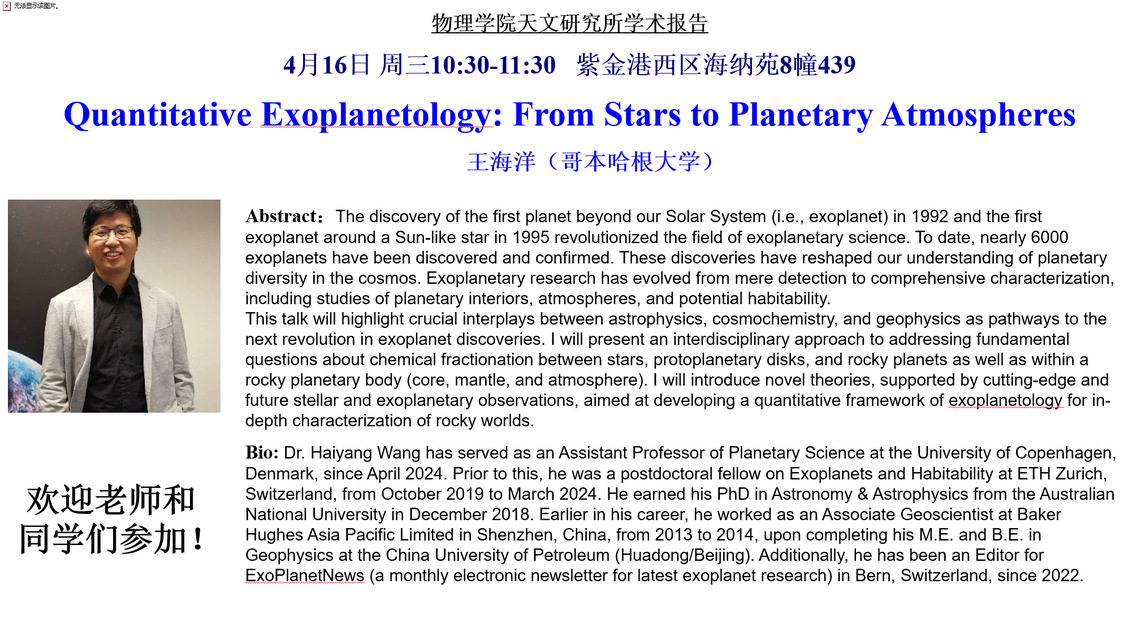 Academic report of the Institute of Astronomy, Zhejiang University
Time:Address:Speaker:发布More
Academic report of the Institute of Astronomy, Zhejiang University
Time:Address:Speaker:发布More -
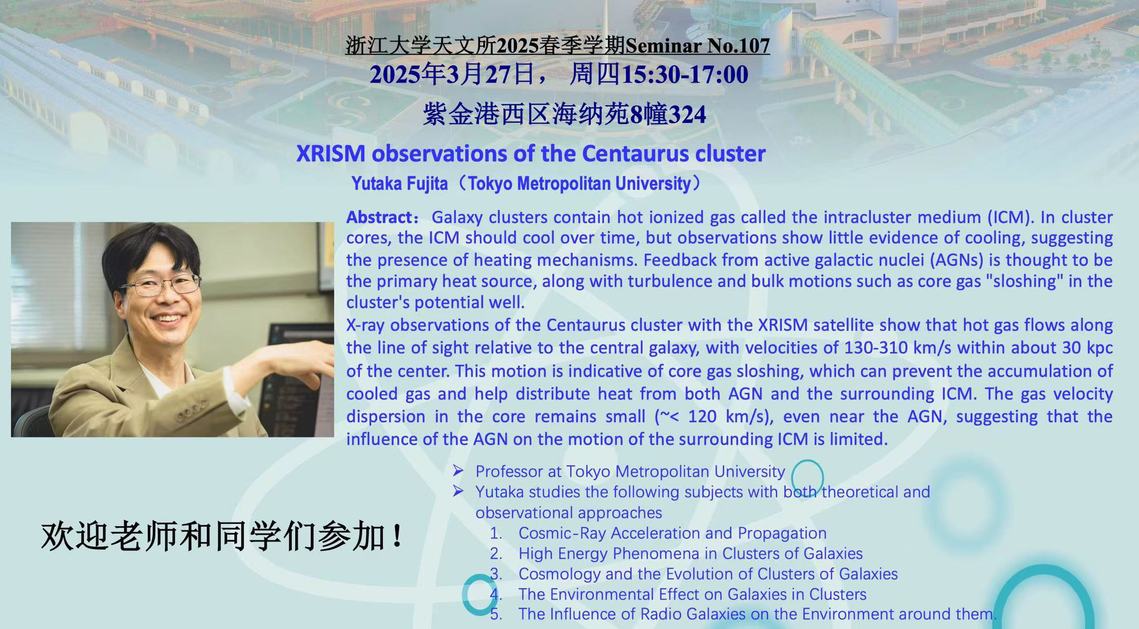 Institute of Astronomy, Zhejiang University Spring Semester 2025 Symposium No.107
Time:Address:Speaker:More
Institute of Astronomy, Zhejiang University Spring Semester 2025 Symposium No.107
Time:Address:Speaker:More
- per page 10 records total 75 records
- firstpage <<previouspage nextpage>> endpage
- PageNumber 5/8 jumpto



